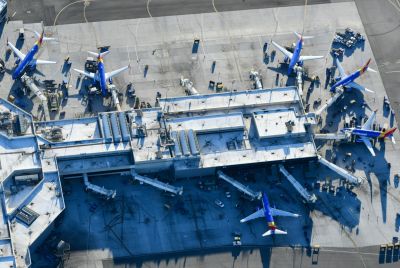London Underground faces new 24-hour strike as RMT drivers plan Central line walkout
Drivers have been asked to take the industrial action from 21:00 on Tuesday 21 February.
London is facing more travel misery as Underground drivers plan to strike for 24 hours on the eastern end of the Central line from Tuesday 21 February in a row over staffing, the RMT Union announced on Wednesday (15 February).
The development comes after peace talks at mediation service Acas between the union and Transport for London (TfL) officials on 3 and 13 January failed to produce a resolution.
The dispute is over so-called staffing "displacements", the transfer of drivers from their home depots at the eastern end of the line to others in central London, meaning they have further to travel.
The RMT claiming it has "no option" but to put on the industrial action after Underground bosses apparently wrote to the union to say it would press ahead with its changes.
"Let us be in no doubt, if LU are allowed to get away with this move on the Central line they will start shunting drivers around the combine at the drop of a hat regardless of the consequences," said Mick Cash, the general secretary of the RMT.
"Our members will be sent out from pillar to post to plug gaps that are solely down to staffing shortages. With massive budget cuts in the pipeline at LU this is a straw in the wind as to how the company expects to operate in the future.
"Staff across London Underground are angry and the company would be wise to recognise that. This latest phase of action is on and RMT remains available for serious talks."
The RMT has asked all affected drivers at Hainault, Leytonstone and Loughton depots not to book on for any shifts from 21:00 GMT on 21 February to 20:59 on 22 February.
The news comes after talks between the RMT and Southern rail "prematurely" broke down at Acas on Wednesday. The union, which represents Southern conductors, has opposed the company's move to drive-only-operations (DOO).
Steve Griffiths, London Underground's chief operating officer, said: "This threat of strike action is completely unnecessary.
"Like any responsible transport authority we regularly examine how we can provide the best possible service to customers and to achieve this sometimes we need to move staff from locations where they are under-utilised, to the places where they are really needed.
"We have agreements with the trade unions that enable us to do this. We have identified eight drivers for whom there is not enough work on the Central line, so we have asked them to move to another line where they would make a real difference to the service our customers receive.
"We are committed to minimising the impact of this move on the eight drivers and we encourage the unions to continue engaging with us in finding a way to do this."
© Copyright IBTimes 2025. All rights reserved.






















